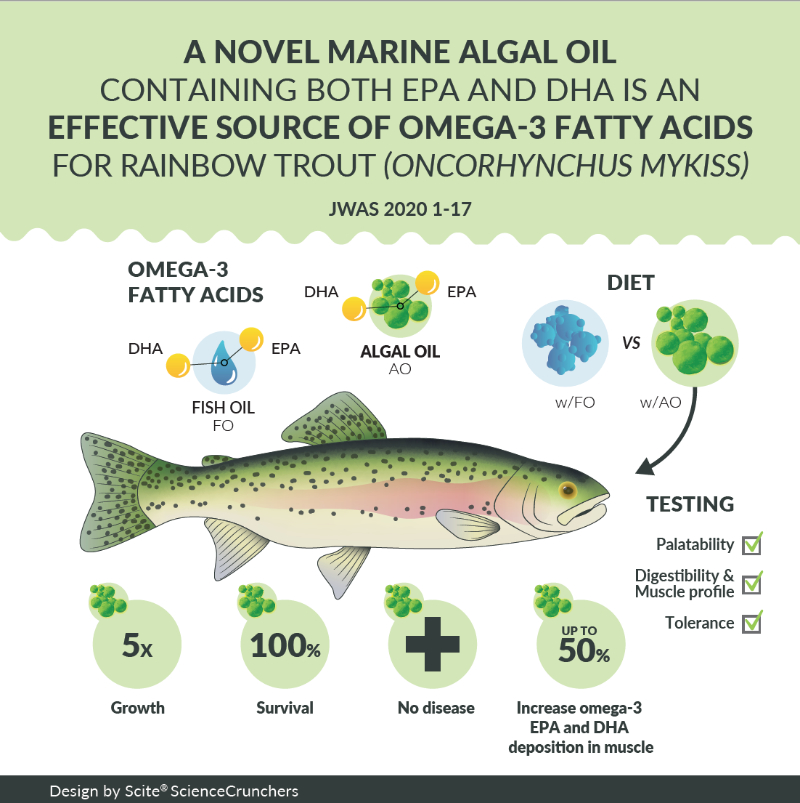JWAS Editor's Choice Awards 56(1)
The use of integrated multi-trophic aquaculture (IMTA) for multi-species culture is not new, but thi...

Omega‐3 fatty acids (FA) must come from alternative sources in order for fed aquaculture to grow in the future. Santigosa et al. (2020) assessed the performance of rainbow trout (Oncorhynchus mykiss) fed with algal oil as a novel eicosapentaenoic acid (EPA) and docosahexaenoic acid (DHA) source and compared this with animals fed a diet containing fish oil. EPA and DHA digestibility was extremely high. The FA profile of fillet tissue very closely followed the diet inclusion, indicating fillet Omega-3 profiles can be improved with appropriate oil inclusion. These results in combination with excellent growth and blood parameters show algal oil containing EPA and DHA is an efficient source of omega‐3 FAs for cultured salmonids.
Amoebic gill disease (AGD), caused by the amoeba Paramoeba perurans, has drastic effects on salmon growth and survival. When Mullins et al. (2020) tested four functional diets in a controlled feeding and challenge trial and found that adding arginine, microadditives, and vitamins C and E improved survival, with arginine being a particularly important pathogen protector. Protective gill mucus had more lysozymes and polysaccharides in treated fish and was more viscous. Overall, functional diet formulations are shown to be a potential method to prevent AGD.
Chinese soft‐shelled turtles (Pelodiscus sinensis) were grown in a turtle–rice coculture system at varying densities. Co-culture resulted in significantly increased yields of rice and turtles over rice monoculture with and without fertilization. Turtle survival increased with density to a maximum recommended density of 10 turtles/m2. Nutrient efficiency improved and water nutrient losses were significantly improved over turtle monoculture.
The culture of channel × blue catfish hybrids in the southeastern United States is increasingly impacted by the pathogen Edwardsiella piscicida. Griffin et al (2020) assessed the crossprotective potential of a live‐attenuated E.ictaluri vaccine against E. piscicida using multiple immunization and challenge tests. Bath immunization with E. piscicida protected challenged channel catfish against E. ictaluri under multiple feeding regimes and holding temperatures. Oral immunization with a feed mix containing an attenuated E. ictaluri vaccine protected channel catfish against intracoelomic injected E. piscicida at high and low bacterial densities. Hybrid catfish immunized by combined attenuated E. ictaluri oral/bath vaccination were protected against low-density E. piscicida and E. ictaluri. A live‐attenuated E. ictaluri vaccine appears, on the basis if these results, to be able to protect channel and hybrid catfish against E. piscicida.